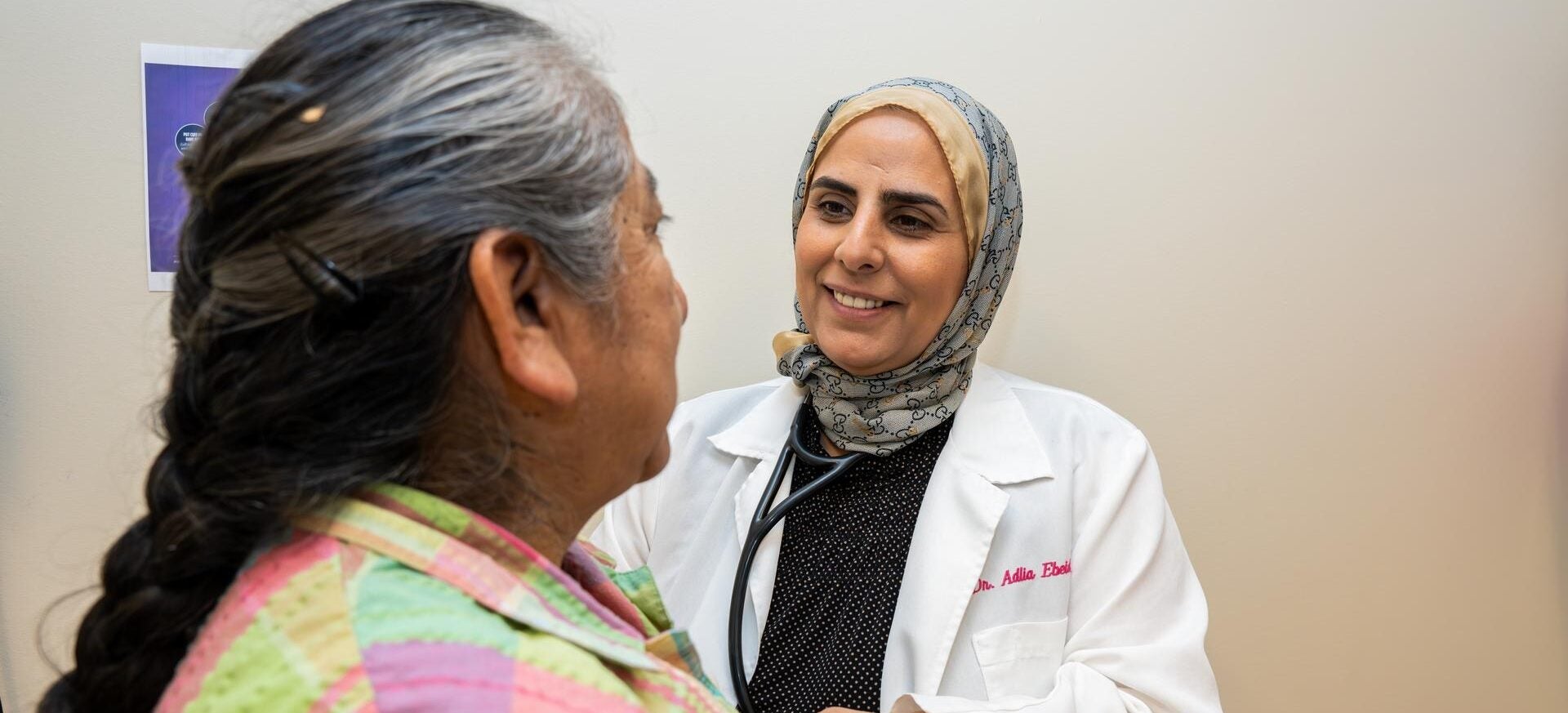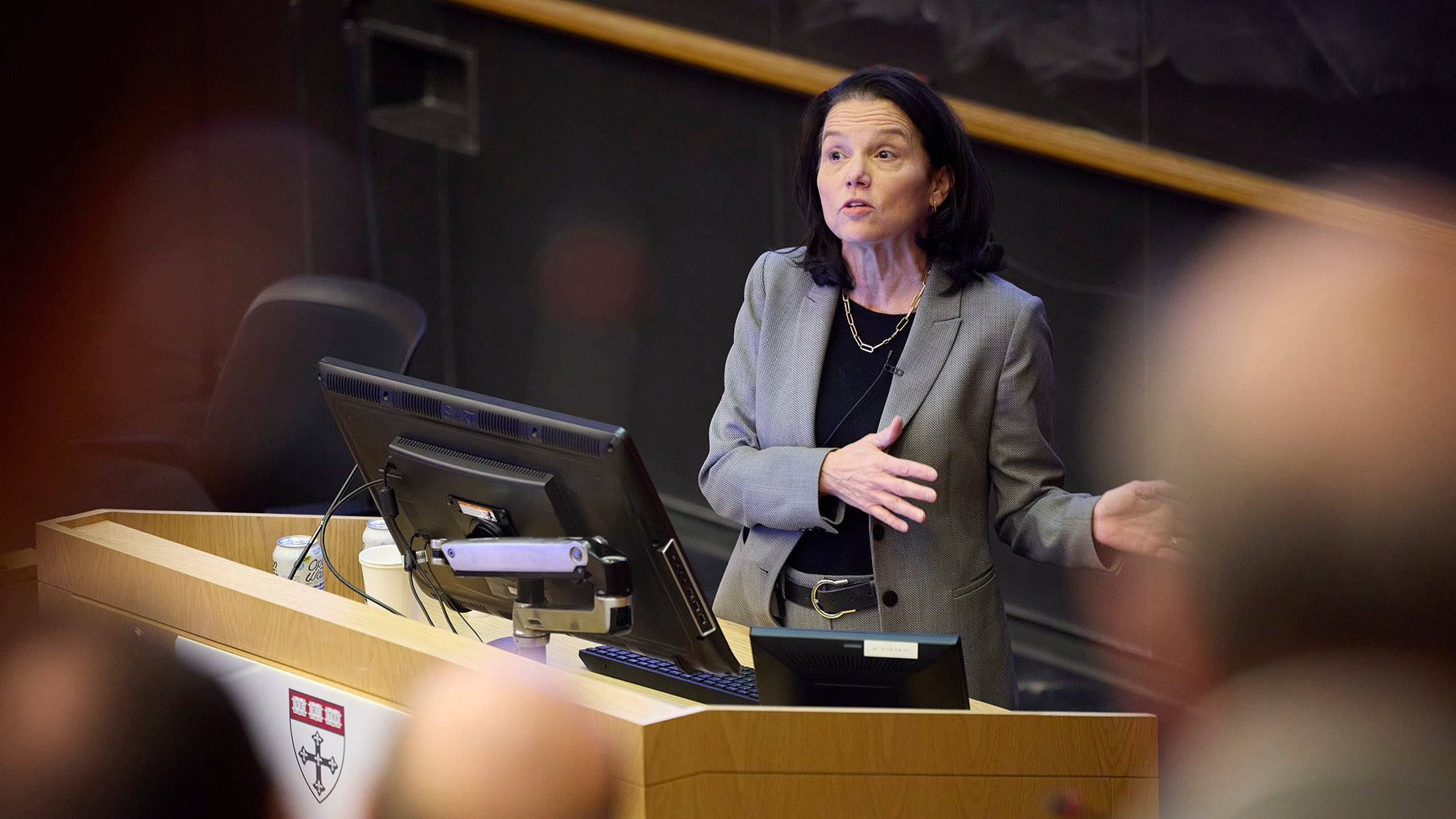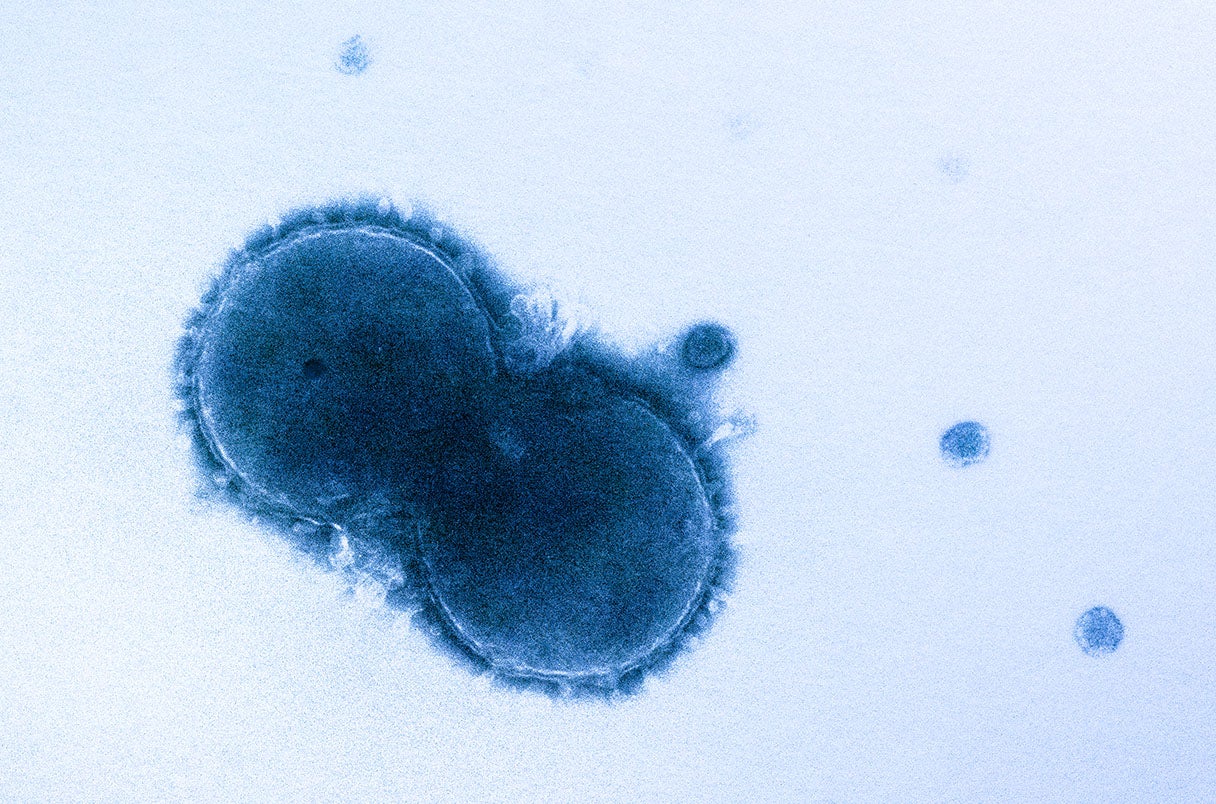Expanded climate toolkit to improve health equity and protect patients on the frontlines of the climate crisis

New resources for caregivers and health care providers to protect health amid hurricanes, floods, wildfires, wildfire smoke and extreme heat.
Stamford, Conn. – Oct. 1, 2024 – In response to the escalating health impacts of climate change, the Center for Climate, Health, and the Global Environment at Harvard T.H. Chan School of Public Health (Harvard Chan C-CHANGE) and Americares have expanded their groundbreaking Climate Resilience for Frontline Clinics Toolkit. The updated toolkit provides resources to help health care providers better manage care and protect patients from extreme heat, wildfires, wildfire smoke, hurricanes and floods.
Uniquely designed for health care providers and administrators working in free clinics and community health centers, the toolkit includes information sheets for patients and clinicians, as well as emergency planning tools and checklists to help clinic administrators prepare for climate-related emergencies. There are more than 40 free online resources in all, available in both English and Spanish. The patient resources include guidance for patients with chronic health conditions such as asthma, cardiovascular disease and diabetes.
Millions of uninsured and underinsured patients across the United States rely on free clinics and community health centers for care. Climate-related disruptions such as intense heatwaves, major storms and power outages threaten clinics’ abilities to provide essential services. To date, materials from the toolkit – first launched in 2022 with founding support from Biogen – have been downloaded nearly 20,000 times.
Key updates to the toolkit include:
New Resources for Caregivers: Guidance on how caregivers can support their loved ones, both in anticipation of and during extreme weather.
New Resources for Heat Interactions with Medication: A comprehensive list of common medications that increase a patient’s risk of health harms related to heat exposure.
New Resources for Wildfire Smoke: Guidance for clinicians and patients increasingly experiencing poor air quality and smoke from distant wildfires.
More Expansive Heat Preparedness Guides: Updated planning tools for patients who have specific conditions or risk factors—for example, pregnant people or people who work outdoors—outlining steps they can take to stay safe when temperatures rise.
Expanded Resources for Clinic Administrators: More robust emergency management planning tools to help clinic staff prepare for climate risks.
Visual Enhancements: More visuals and improved infographics incorporating the latest scientific research to increase patients’ understanding of climate risks, including patients with low literacy.
Clinician Documentation Templates: Text-based templates that can be incorporated into clinical documentation and after-visit summaries in an electronic health record.
The updates were informed by feedback from 24 clinics across the U.S. that piloted and tested the toolkit in 2023. In addition, all materials went through an extensive co-development and review process that included more than two dozen climate scientists, public health experts, clinicians and emergency management specialists affiliated with major universities and research institutions.
“We know from decades of responding to extreme weather emergencies and working with partner clinics on the frontlines of the climate crisis that providers need resources to protect patients,” said Americares Director of Climate and Disaster Resilience Elena Ateva. “Every day, clinic staff see patients whose health is at risk because they can’t afford air conditioning or labor in dangerous heat. Climate change is affecting health now, and providers need tools informed by the latest research and guidance.”
The World Health Organization has declared climate change the single greatest threat to humanity, with extreme weather events, pollution, disease and other environmental factors claiming 13 million lives every year. In the U.S., extreme heat killed more people last year than hurricanes, floods and tornadoes combined.
“As an emergency physician, I saw firsthand how this summer’s record-breaking heat affected my patients,” said Dr. Caleb Dresser, director of healthcare solutions at Harvard Chan C-CHANGE. “With these new resources, we want to make sure that everyone—whether they are pregnant, work outside all day, or are caring for an elderly parent—knows what to do when they face heat, extreme weather, wildfire smoke, or other climate-related hazards.”
The Climate Resilience for Frontline Clinics project takes a patient-centered approach to climate action by prioritizing climate investments for individuals who lack access to care in communities where health disparities are apparent. The project began with a 2021 survey of clinic staff from 47 U.S. states and territories, revealing:
- 81% of clinic staff reported experiencing disruptions due to extreme weather in the past three years;
- Fewer than 20% of clinic staff felt their clinic was “very resilient” to extreme weather;
- 77% of clinic staff lacked the knowledge or tools for climate change preparedness;
- And over 80% expressed a need for education and training on protecting patients from climate-related events.
In Houston, where residents endured intense heatwaves, a hurricane and widespread power outages this summer, San José Clinic Chief Clinical Officer Adlia Ebeid said the toolkit has been especially useful in conveying the health risks associated with working outdoors in extreme heat.
“The climate toolkit has been instrumental in empowering our staff and volunteer providers to engage in life-saving conversations with our most vulnerable patients, who are disproportionately exposed to extreme weather,” Ebeid said. “Having clinical, patient and administrative tools at our disposal has enhanced our ability to tailor our patient encounters and recognize the impacts of working in the elements. It’s part of our efforts to decrease adverse outcomes and ER visits related to occupational climate hazards and enhance health equity.”
Public health departments are also using the toolkit to share guidance with medical staff. In Washington state, the public health department of Seattle & King County has been sharing the online toolkit with local health care providers and DC Health, the health department for Washington, D.C., plans to translate the updated toolkit into additional languages. The government of South Australia’s Public Health Division also plans to adapt the updated toolkit for use in the state.
The Climate Resilience for Frontline Clinics toolkit is part of Harvard Chan C-CHANGE’s Climate MD program, which focuses on developing and evaluating tools for climate-resilient health care facilities and introducing climate-related curricula into medical and public health education to ensure a more climate-ready health care workforce.
Americares climate resilience work is focused on health equity and climate justice and is informed by decades of experience preparing communities with disaster-risk reduction training and disaster-preparedness boot camps, responding to climate-related emergencies and helping communities recover from major hurricanes and other extreme weather events.
Going forward, Harvard Chan C-CHANGE and Americares plan to work with stakeholders to co-create similar climate toolkits in three to five countries outside the U.S. The work, supported by Johnson & Johnson, is already underway in the Philippines, where a new climate toolkit is expected to be piloted next spring.
About Americares
Americares is a health-focused relief and development organization that saves lives and improves health for people affected by poverty or disaster. Each year, Americares reaches 85 countries on average, including the United States, with life-changing health programs, medicine, medical supplies and emergency aid. Americares is one of the world’s leading nonprofit providers of donated medicine and medical supplies. For more information, visit americares.org.
About Harvard Chan C-CHANGE
The Center for Climate, Health, and the Global Environment at Harvard T. H. Chan School of Public Health (Harvard Chan C-CHANGE) increases public awareness of the health impacts of climate change and uses science to make it personal, actionable, and urgent. The Center leverages Harvard’s cutting-edge research to inform policies, technologies, and products that reduce air pollution and other causes of climate change. By making climate change personal, highlighting solutions, and emphasizing the important role we all play in driving change, Harvard Chan C-CHANGE puts health outcomes at the center of climate actions. To learn more visit https://www.hsph.harvard.edu/c-change/
MEDIA CONTACTS:
Jacqueline Serna/Americares:
(203) 379-7966
jserna@americares.org
Anna Miller/Harvard Chan C-CHANGE:
(617) 610-1620
amiller@hsph.harvard.edu


